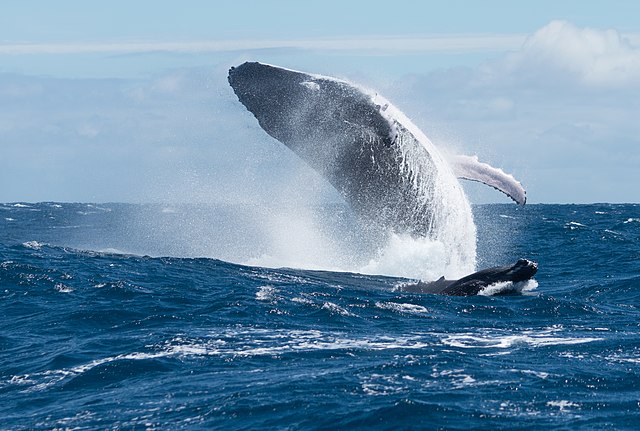
Adopted in 2022, the Kunming-Montreal Global Biodiversity Framework (GBF) seeks to protect at least 30% of the high seas, in the hopes of helping marine biodiversity under threat from pursuits including fishing, mining, and shipping. Alongside the United Nations High Seas Treaty of 2023, offering environmental protection for international waters, it is one of the most recent and prominent proposals to protect international waters.
But, is 30% enough? New research published in the journal Science and completed in part by researchers of the University of Exeter suggests that it’s not. This paper assessed the behaviour of 111 species, around 70% of which have a decreasing or unknown population trend, and more than 50% of which have a threatened conservation status of Vulnerable, Endangered, or Critically Endangered.
The research found that the 30% area protection proposed by the GBF would cover less than half of the Important Marine Megafauna Areas (IMMegA). IMMegAs are areas of water used by marine Megafauna (marine species of a large size or taxonomy) for breeding, feeding, and migratory behaviours.
Commenting on the research, Ana Sequeira of Australian National University said, “we found that the areas used by these animals overlap significantly with threats like fishing, shipping, warming temperatures and plastic pollution”, suggesting the goal of 30% is “helpful but insufficient to protect all important areas”.
the goal of 30% is “helpful but insufficient to protect all important areas”.
Aditionally, more than 85% of the species considered spent a greater amount of time outside of Marine Protected Areas (MPAs) than inside. The suggested reason for this was that MPAs were determined according to specific habitats rather than considering the range of a species.
The GBF and any additional measures face numerous challenges as they rely on world leaders. At the time of writing, the GBF has been ratified by 50 of the 60 countries required for the treaty to become binding international law. The UK has signed the treaty but has not ratified it yet. Cooperation from the US appears doubtful after President Donald Trump signed an executive order in April 2025 to accelerate deep-sea mining both in US and areas beyond the country’s jurisdiction.
In an article published in the journal Nature, Professor Callum Roberts (University of Exeter) and others argue that deep-sea mining and fishing are both damaging and unnecessary practices. According to the research, fisheries would benefit from ceasing fishing in international waters, giving them access to healthier stocks in national waters. When it comes to deep-sea mining, the scientists argue that larger, land-based mineral reserves exist that can be accessed with either less risk, or risks that are easier to manage and mitigate.
fisheries would benefit from ceasing fishing in international waters
So, what can be done? The recently published research argues for extraction and exploitation in international waters to end immediately, because of the threats to and ineffectiveness of the GBF goal. Roberts spoke on the subject: “This paper makes the case that we should stop extractive activities in the high seas permanently, to protect the climate, restore biodiversity, and safeguard ocean function for future generations.”
Aside from that, this research paper proposes changes to fishing equipment, particularly the commonly used Drifting Fish Aggregation Device (dFAD). As the name suggests, these are uncontrolled rafts with a net or rope structure hanging underneath them. From 2007-2021, around 120,000 dFADs were deployed annually and, depending on the fishery, up to 90% were lost or abandoned. The threat of dFADs is that they capture animals that aren’t being targeted for fishing (e.g. turtles, dolphins), with lethal consequences. If changes to fishing practices were made, then animals could be targeted more specifically to reduce environmental damage.
Research therefore indicates that the GBF’s 30% protection target is helpful, but insufficient in affecting meaningful change for the world’s oceans. Additional laws and international cooperation will be necessary.

